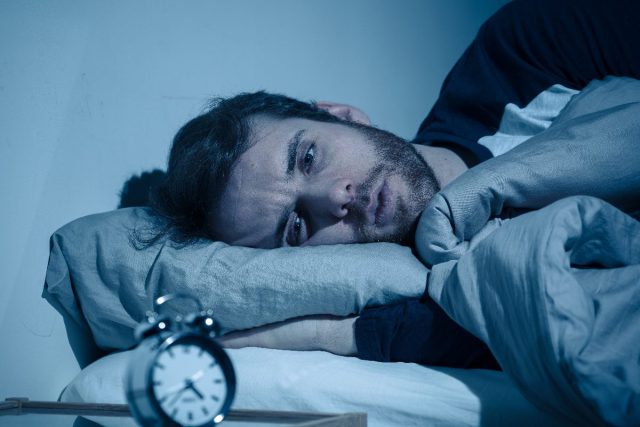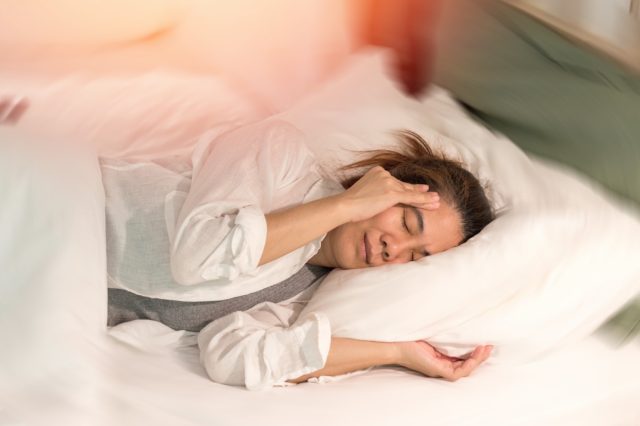The use of marijuana for both medical and recreational purposes is becoming increasingly mainstream, but marijuana’s status as a schedule 1 drug (“drugs with no currently accepted medical use and a high potential for abuse,” according to the DEA) makes clinical trials and research difficult, if not impossible. “We need a lot more research,” says Robert Kloner, MD, PhD, chief science officer at Huntington Medical Research Institutes and professor of medicine at the University of Southern California in Los Angeles. “It’s inevitable that more and more states are going to legalize marijuana for medical and/or recreational use, and the cardiology community and the users need to know more about the impact.” Here are five little-known side effects of marijuana, according to medical experts. Read on—and to ensure your health and the health of others, don’t miss these Sure Signs You’ve Already Had COVID.
Studies show marijuana use may lead to sleep issues. “Current and past marijuana users are more likely to experience sleep problems,” says Jilesh Chheda, research assistant at the University of Pennsylvania in Philadelphia. “Marijuana use is common, with about half of adults having reported using it at some point in their life. As it becomes legal in many states, it will be important to understand the impact of marijuana use on public health, as its impact on sleep in the ‘real world’ is not well known.”

Frequent marijuana use has been linked to paranoia, especially with edible gummies that contain high levels of THC (tetrahydrocannabinol, the main psychoactive constituent of cannabis). “For most people, if they eat 30 mg of THC in an edible dose, there are going to be a lot of psychoactive side effects that they don’t want,” says Gregory Gerdeman, PhD, who recommends that a single-serving edible should not have more than 10 mg of THC.

Can marijuana cause psychosis? Research shows teenagers who smoke pot have an increased risk of developing schizophrenia later in life. “We definitely know that there’s a dose-dependent relationship between THC and psychosis,” says Michael McDonell, an addiction treatment expert at the Washington State University college of medicine.

Studies have linked marijuana use with genetic changes to sperm, scientists say. “What we have found is that the effects of cannabis use on males and their reproductive health are not completely null, in that there’s something about cannabis use that affects the genetic profile in sperm,” says Scott Kollins, PhD, professor in psychiatry and behavioral sciences at Duke University. “We don’t yet know what that means, but the fact that more and more young males of child-bearing age have legal access to cannabis is something we should be thinking about.”

Research shows marijuana and depression may be closely connected. “Some research suggests that marijuana smokers are diagnosed with depression more often than nonsmokers are — particularly regular or heavy marijuana users,” says Daniel K. Hall-Flavin, MD. “However, it doesn’t appear that marijuana directly causes depression. It’s likely that the genetic, environmental or other factors that trigger depression also lead to marijuana use. Some people with depression may use marijuana as a way to detach from their depressive symptoms. Heavy users may appear depressed as a result of the dulling effects of the drug on feelings and emotions. There also are links between marijuana and other mental health conditions. Marijuana use may trigger schizophrenia or detachment from reality (psychosis) in people who are at higher risk of psychosis. The symptoms of diagnosed psychotic illness may be aggravated if marijuana use continues.”
Ferozan Mast

 The Best Legal Delta 9 Near You in Park Forest North
The Best Legal Delta 9 Near You in Park Forest North 
Be the first to comment